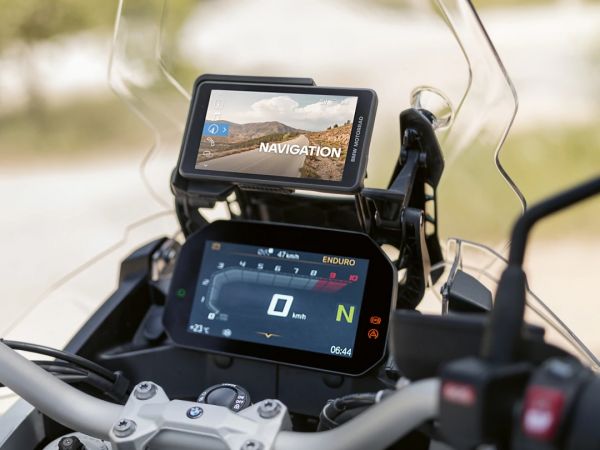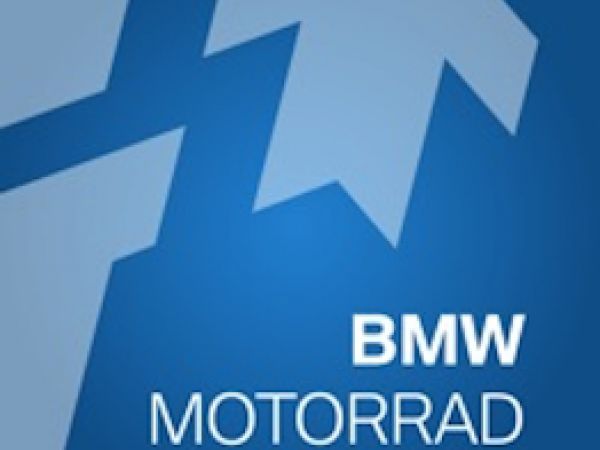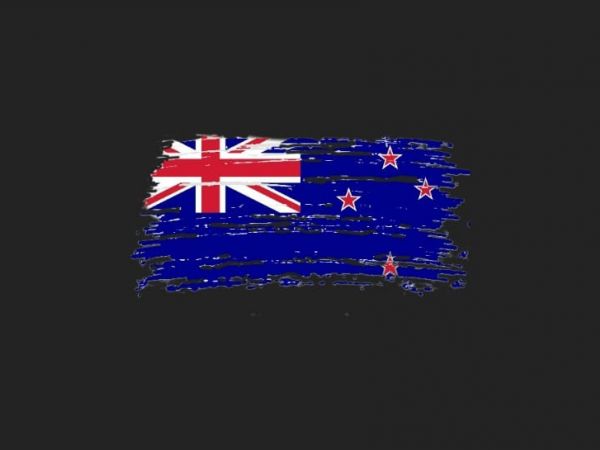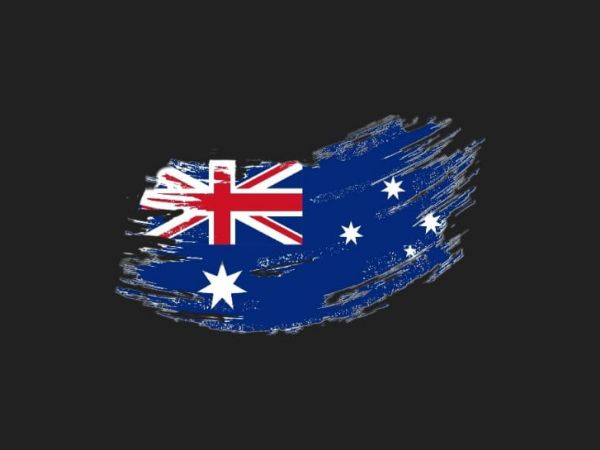Traffic regulations in Oceania - New Zealand
Traffic regulations in Oceania - New Zealand
Category: Traffic regulations Oceania
What should be considered on a motorcycle tour through New Zealand? What documents do you need to bring with you? MotoGS WorldTours provide you with answers to your most important questions.
Errors and omissions excepted - all information without guarantee.
Basics:
Of course, New Zealand is NOT a member of the European Union, but is a member of the British Commonwealth. New Zealand also follows British rules and of course worships the English royal family.
It is therefore obvious that New Zealand drives on the left, as is the case with British rules.
The local currency is the New Zealand Dollar, NZD.
Vehicle papers and other necessary documents:
You do not really need to think about vehicle documents, unless you want to have your own motorcycle brought to New Zealand by plane or shipping container. In principle, this is of course possible, but it bears no financial relation to the costs if you rent a motorcycle easily and uncomplicatedly on site.
If you still wish to have your own motorcycle brought to New Zealand, then you must ensure that the motorcycle leaves the country after 365 days at the latest, otherwise it will be considered an import, and that can or will be even more expensive. Incidentally, the import should also be very difficult, since at least proof of residence status is required.
The international driver's license is also required as additional to your national driver's license. Renting a motorcycle or car is almost impossible without an international driver's license.
A passport is sufficient for a tourist stay of up to 90 days for EU citizens. A visa is generally not required, as most EU countries are waiver countries. If you want to stay longer than 90 days, you must apply for a tourist or visitor visa.
Of course, non-EU citizens must also carry a passport, and the same requirements apply as for EU citizens.
Here too, however, it is important to check whether your country of origin is one of the waiver countries.
In any case, it is advisable to check the following website, such as “VisaHQ”, to find out about the entry requirements of your country of origin for entering New Zealand.
If you are traveling to New Zealand as a tourist for less than 90 days and may not need a visa, you will definitely need the NZeTA (New Zealand Electronic Travel Authority), which can be easily applied for and paid for online via “Request your NZeTA".
This application also includes the IVL. And what is behind the IVL again? If you want to enter New Zealand, you also have to pay an IVL fee. This fee finances the tourist infrastructure and contributes to the protection of New Zealand's natural environment. You pay the IVL fee when you apply for your NZeTA. The IVL currently costs NZD 100.
All identity documents must be valid for at least 3 months upon departure.
With a rented motorbike through New Zealand:
Basically no problem. Requirements to be able to rent a motorcycle in New Zealand, You must be at least 20 years old (this can vary depending on the motorcycle category and local rental company). As a rule, the rental stations require a minimum age of 20 or 23 years. For riders under 21, sometimes even under 23 years of age, young rider surcharges are often required.
Health insurance:
Basically and almost obligatory, all travelers to New Zealand, regardless of their country of origin, should take out international health insurance. This can also be done easily here via Global Rescue. Surely this type of insurance protection is a bit more expensive than other providers. However, as the name suggests, this type of coverage is built on Rescue. Therefore not comparable. However, this should not be understood as advertising, it is a simple recommendation.
Pay Attention: It is also good to know that in New Zealand all locals and all tourists are automatically insured via ACC (The Accident Compensation Corporation) in the event of an accident. The ACC is a form of mandatory insurance that the government provides for free for Kiwis and tourists. However, this alone does not release you from the personal responsibility to take out your own private insurance cover, for example to take care of the home transport after event of an accident.
Helmet obligation
Helmets are compulsory! A special certification of a motorcycle helmet is not known.
First aid kit / warning vests:
It is not absolutely necessary to carry a high-visibility vest and a first-aid kit. However, it is always advisable to have safety vests, first aid kit, a motorcycle warning triangle and a small warning light with you, just in case.
Lighting:
It is not compulsory to turn on the lights during the day. However, it is highly recommended to switch on the light, no matter what time of day and no matter whether outside of town or in town.
Speed limits in New Zealand:
In urban areas: 50 km/h
Expressways: 100 km/h
Motorway: 100 km/h
Exception is a short section of the Motorway near Hamilton and Auckland (both cities on the North Island), there has been a short section on which 110 km/h are permitted for several years.
Pay attention: Compliance with the maximum speed is checked very meticulously. It is inexplicable why there are so many patrol cars in New Zealand. Even if you think a police car is coming towards you, it is not able to measure your speed. INCORRECT! Especially the oncoming police cars are almost all equipped with speedometers and video cameras. The police can measure your speed exactly the same way whether the police car is moving or stationary. Measurements are taken out of the police car from behind and from the front.
If you exceed the speed limit by more than 6 km/h you are already on the stop list, which means that the police will immediately turn the police car around and stop you with blue lights. Discussing is pointless, it is a good thing that the New Zealand police are basically very friendly to foreigners and especially to Europeans, since it is also known in New Zealand that you can and want to be on the road much faster in many European countries. That does not mean, however, that this gives you the right to disregard New Zealand traffic rules.
To bring it to the point: We have never seen so many patrol cars on the road like in New Zealand compare to other country. Even in Colombia are less patrol cars on the road.
Alcohol limit:
The general traffic rules of New Zealand also determine how much per thousand alcohol in the blood a driver is still allowed to drive on the road. The blood alcohol limit is 0.5‰ and 0.0‰ for road users under 20 years of age. Since alcohol is a bigger problem, especially in the south of the North Island in Wellington, very frequent alcohol tests are to be expected. Especially in the evening hours.
Fines of up to EUR 11,000 are possible, as are a driving ban and imprisonment.
Tired of tolls on motorways, tunnels and bridges, also in New Zealand.
To improve traffic routes and long-distance connections, toll roads are also being used in New Zealand. There are currently three toll roads: the Northern Gateway Toll Road north of Auckland, the Tauranga Eastern Link Toll Road and the Takitimu Drive Toll Road, both in Tauranga. A toll is charged each time the toll roads are used. The amount you have to pay depends on the type of vehicle and is very small for motorcycles. Tolls are signposted as you approach the toll roads.
How and where to pay the toll?
The toll roads are electronically monitored. Before entering a toll road you will find many signs and detours are also signposted to avoid the toll road. The toll must be paid within 5 days of using the road. You can also buy the toll online by NZ Transport Agency in advance.
However, to put it in the most straightforward way, as a motorcyclist you usually care a lot about the environment in which you ride, in other words real motorcyclists avoid every toll road.
Nevertheless, there are the following 3 toll roads in New Zealand:
- Northern Gateway Toll Road
The Northern Gateway Toll Road is a 7.5 km motorway north of Auckland between Silverdale and Puhoi, part of State Highway 1 (SH1). To the north, the toll road begins just before Orewa and ends after the Johnstone Hills at Puhoi. The toll road gives you a choice of going direct or taking the scenic State Highway 17 via Orewa (detour without tolls).
- Tauranga Eastern Link Toll Road
The Tauranga Eastern Link Toll Street is a 15 km section of State Highway 2 (SH2) between Domain Road, near Pāpāmoa and Paengaroa Roundabout (SH2 and SH33 to Whakatāne and Rotorua). A free alternative route takes you on the Te Puke Highway, through Te Puke (detour without toll).
- Takitimu Drive Toll Road
The Takitimu Drive Toll Road, formerly known as the Route K Toll Road, is a 5 km road that bypasses downtown Tauranga between State Highway 29 (SH29) to State Highway 2 (SH2) towards the Port of Tauranga and Mt maunganui. The alternative routes are via Cameron Road or Cambridge / Moffat Road (detour without tolls).
Pay attention:
Even the new 27 km bypass, past Poriua to Wellington, the Transmission Gully Motorway, does not have a motorway toll. Not so far, according to the previous government of Prime Minister Jacinda Ardern and current Prime Minister Chris Hipkins.
Special traffic rules:
There is left-hand traffic in New Zealand, even in a roundabout. You should first get used to this, especially if you have never had the opportunity to learn and experience this before. Especially at intersections without traffic lights in flowing traffic, it is a big change. But after a few hours you will get the hang of it. It is always best to try to follow behind a car or another motorcycle because they know what to do. At least that is how it should be.
There is no overtaking on solid yellow lines on the side of your center line. If there is a center line with a double yellow line, overtaking is not permitted on either side.
Parking on the right side of the road, except on one-way streets, is prohibited and will be expensive with a fine.
Parking is also prohibited on yellow dashed lines (up to 1 m from the edge of the road) or near fire hydrants (yellow circle with a dot inside).
Correct behavior in the event of an accident or breakdown:
In some countries, including New Zealand, it is important to call the police even in the case of "minor damage", because the police protocol is the basis for the settlement of the damage.
Emergency numbers in New Zealand:
The emergency number for police, ambulance and fire brigade is 111
As of 07/05/2023

TAGS
transmission gully toll in new zealand takitimu drive toll road nz transport agency northern gateway toll road global rescue acc new zealand accident compensationShare Your Thoughts
Share your experiences, questions, or suggestions!
Comments from Fellow Riders
Nobody has commented yet – your thoughts?
Blog categories
Moto Tours

* Balkan-Italy Adventure Tour
Approx. 2340 miles!
14 riding days through 5 countries!
15 overnight stays + 2 overnight stays on a ferry!

* Balkan-Carpathians-Albanian Alps Tour 2
Approx. 3138 miles!
21 riding days through 7 countries!
27 overnight stays!

* Balkan-Romania Adventure Tour
Approx. 2220 miles!
11 riding days through 5 countries!
12 overnight stays!

* Balkan-Carpathians-Albanian Alps Tour 1
Approx. 2520 miles!
15 riding days through 7 countries!
18 overnight stays!

* Croatia-Italy-France Adventure Tour
Approx. 1990 miles!
15 riding days through 4 countries!
17 overnight stays + 1 overnight stay on a ferry!

* Croatia-Sicily-Amalfi Coast Tour
Approx. 2730 miles!
18 riding days through 3 countries + Sicily!
21 overnight stays + 1 overnight stay on a ferry!

* New Zealand Adventure Tour
Approx. 4133 miles!
20 riding days through the South and North Island!
24 overnight stays + 1 overnight stay on a cruise!

Croatia - Route des Grandes Alpes, July 2025
2 Americans - 1 boy and 1 girl, 1 motorcycle - a BMW R1250GS, one motorcycle tour and one goal ...

Balkans - Romania Tour, June 2025
At the end of June 2025, the time had finally come. Between June 23 and June 25, all participants in this tour gradually arrived in Trogir.

Balkans - Italy Tour, May 2025
Together we covered about 3700 km, crossing the Adriatic twice, from Durrës to Bari and from Ancona to Split.

Money protection in the event of insolvency
Money Protection Certificate according to § 651r and § 651w of the Civil Code of the Federal Republic of Germany ...

Packing list for a motorcycle tour
Pack your things and get going...

Travel planning and navigation
The next vacation is just around the corner, hopefully, and you've decided to finally ...

Riding a motorcycle in a group or alone?
Riding a motorcycle in a group or riding alone? Are you worried about safety, contact with other people ...

The International Driving Permit
Understanding the International Driving Permit (IDP). A Key to Smooth Overseas Riding for ...

BMW Motorcycle ConnectedRide Navigator
The new BMW Motorcycle ConnectedRide Navigator ...

BMW-ConnectedRide Cradle and Connected App
Riders of new BMW models have several options for using information and entertainment ...

Traffic regulations in Oceania - New Zealand
What should be considered on a motorcycle tour through New Zealand?

Traffic regulations in Oceania - Australia
What should be considered on a motorcycle tour through Australia?

